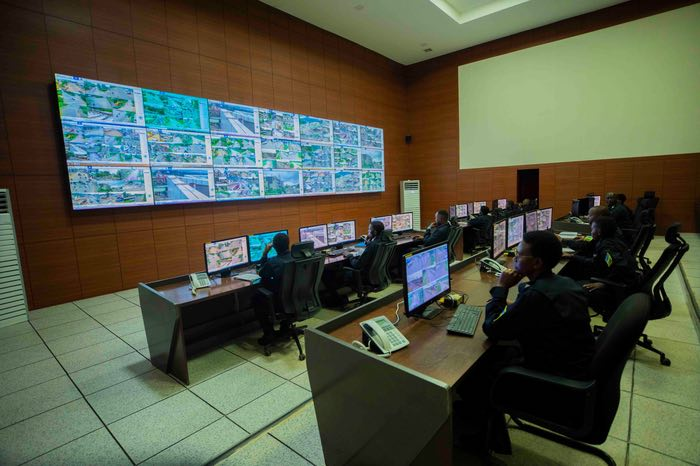
By IP Francois MUGIRANEZA
“According to the Global Cybersecurity Index by the International Telecommunication Union, Rwanda ranks in the top cybersecurity tier globally—with a near-perfect score.”
In a fast-moving world, effective policing goes beyond physical presence, it’s about being swift, smart, and secure in how services reach citizens.
Rwanda National Police (RNP) has been making a good shift in digitizing core operations like road safety management, driving and licensing services, motor vehicle inspections, criminal investigations while confronting modern cybercrime threats with advanced tech.
Gone are the days of long queues, paper exams, and lost licenses. With systems now automated and interconnected, the RNP is redefining efficiency—and building trust along the way.
Policing with a digital backbone
Assistant Commissioner of Police (ACP) Oscar Sakindi, who heads the Information Technology Department, says technology has become central to Rwanda’s policing strategy.
“We can’t have an officer on every street, but we do have cameras and drones monitoring key zones,” he says. These tools, especially in Kigali and hard-to-reach areas, help detect crime in real time and support investigations with solid evidence.
Beyond physical crime, cyber threats are also on the radar. “Criminals evolve with tech, so we must stay a step ahead,” ACP Sakindi adds.
RNP now runs cyber-monitoring units and uses national networks to track malicious online activity.
The Musanze-based National Police College (NPC) has also introduced information security into its curriculum, with officers and civil servants trained regularly in cyber awareness.
The results are showing. According to the Global Cybersecurity Index by the International Telecommunication Union (ITU), Rwanda ranks in the top cybersecurity tier globally—with a near-perfect score.
Testing and licensing, from paper trails to digital track
Perhaps nowhere is this digital visible than in the Testing and Licensing Department. A decade ago, acquiring a driving license was a paper-based process.
“We had to travel to provinces with stacks of paper exams,” recalls ACP Dr. Steven Rukumba, head of the department. “Correction took weeks, some licenses would get lost, and the process dragged for more than 21 days.”
Now, candidates apply through Irembo, the government’s digital services portal, where they book exam slots, and get tested electronically.
At the Busanza Automated Driving Test Centre, candidates complete driving tests without an officer in the vehicle—motorcycles and cars are monitored remotely, and results are immediate.
ACP Dr. Rukumba notes that digitalization has improved service delivery by 90 percent on their end, and 99 percent from the citizens’ perspective. “We now operate 17 automated centers across the country, serving over 3,000 applicants daily,” he says.
One such applicant is Jean Paul Karamaga, who recalls how his older brother lost a paper license in the wash sometimes back. “Now, I applied online, paid on my phone, chose my exam date, and got my results instantly,” he says. “It took 20 minutes.
Technology made the whole experience smooth and transparent.”
Road safety in the digital age
The Traffic and Road Safety Department has also gone digital. With automated speed cameras, digital fine systems, and a revamped approach to accident investigations, enforcement has become more precise.
ACP Gerald Mpayimana, who heads the department, says they have moved from handwritten tickets to smart enforcement tools. “We now fine speeding motorists based on camera data, seize and auction vehicles digitally, and record violations electronically,” he explains. This transition has raised the department’s digital service capacity to 85 percent.
Technology has not just streamlined internal systems—it’s also made the force more accountable. “Body-worn cameras now help us tackle police misconduct and corruption during traffic stops,” ACP Mpayimana adds.
Still evolving, but on the right track
The Rwanda National Police acknowledges that the digital journey is ongoing. But from cybercrime to licensing and traffic safety, the pace of progress is undeniable. Every automated process means less bureaucracy, fewer loopholes, and more trust between citizens and law enforcement.
In a region where efficient policing is often the exception, Rwanda is quietly making digital excellence the new standard. (End)
